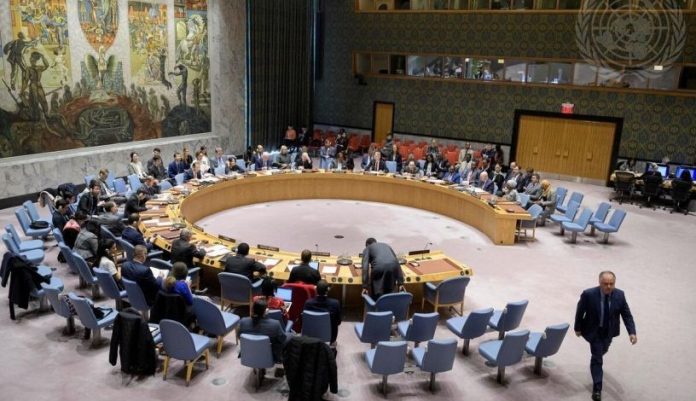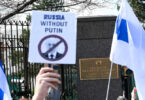UNITED NATIONS (APP): India has angrily denounced and disassociated itself from a United Nations General Assembly resolution calling for unity to tackle new emerging terrorist threats, after failing in its bid to incorporate into the text some self-centred proposals designed to showcase New Delhi’s anti-terror activities.
The Indian action came on Friday evening as the 193-member Assembly concluded its 8th biannual review process of the UN Global Counter-Terrorism Strategy (GCTS), with the adoption of the resolution that involved months of negotiations in which Pakistan played an active role.
The review process was co-facilitated by the ambassadors of Canada and Tunisia.
India was pushing for the inclusion into the resolution of the so-called ‘Delhi Declaration’ adopted by the 15-member UN Security Council Counter-Terrorism Committee’s special meetings held in India in October 2022 as well as the outcome of the conference on “No Money for Terror” — documents which were not negotiated by ALL member countries. As such the Indian proposals were not included in the final resolution, a move that enraged India.
The Delhi Declaration focused on three main areas: unmanned aerial systems, terrorist financing, and information and communications technologies.
After the setback, an irate Indian Ambassador, Ruchira Kamboj, took the floor to vent her feelings, targeting the co-facilitators as well as Pakistan — without naming it.
“It was deeply disappointing to note that the co-facilitators of the … Strategy not only disregarded the strong support and trust offered by my delegation to their efforts since the beginning, but also that they acted in a non-transparent, non-consultative, and partial manner, making an exception to accommodate the concern of one delegation while completing ignoring the contribution and concerns of my delegation,” she said.
“The Co-Facilitators have chosen a path to put my delegation in a difficult situation forcing us to accept an outcome which the wider membership does not deserve, the Indian envoy said, adding, “They have left us with no option but to disassociate with this document altogether.”
A veteran European diplomat expressed his “deep” disappointment over India’s action, saying the move reflected New Delhi’s bid to impose its will on member states.
“It showed the prioritization of their narrow political agenda over the broader global effort to combat terrorism,” the diplomat said in an interview with APP UN correspondent.
On its part, Pakistan took the position that documents, including the Delhi Declaration, which were not negotiated by a wider membership, should not become a part of the General Assembly resolution, which is adopted by consensus.
“This principled position was widely understood and accepted as well,” a Pakistani diplomat said.
Pakistan, he added, had also succeeded in retaining references to “foreign occupation”, and “conflict resolution” in the context of root causes of terrorism and Islamophobia.
The GCTS is a special global tool designed to enhance efforts at the national, regional, and international levels to combat terrorism. It consists of four pillars: (i) addressing the conditions that contribute to terrorism, (ii) preventing and combating terrorism, (iii) building states’ capacity to fight terrorism and strengthening the role of the UN system in this regard, and (iv) ensuring respect for human rights and the rule of law as the fundamental basis of the fight against terrorism.
Last week, Pakistan’s UN Ambassador Munir Akram said his country has been at the forefront of the fight against terrorism and has rendered innumerable sacrifices of more than 80,000 lives. “
“Spoilers in our neighbourhood continue to target us,” he added. The United Nations, particularly the Security Council, must address situations of prolonged, unresolved conflicts and foreign occupation.
“There is a continued campaign to portray struggles for self-determination and national liberation as terrorism in order to justify the oppression of people under foreign occupation,” he added. It is critical to clearly define terrorism and distinguish it from legitimate struggles for national liberation and self-determination.
The GA resolution condemned terrorism, underscoring the importance of the road map adopted in 2006 in view of emerging new threats and evolving trends after States detailed their national counter-terrorism measures and highlighted the importance of international cooperation.
Unanimously adopting the text, the Assembly called on member states to unite against terrorism and violent extremism. They reaffirmed the Global Strategy’s four pillars and encouraged member states to develop programs enhancing dialogue among civilizations and interreligious and intercultural understanding and respect as important counter-terrorism cooperation elements.







